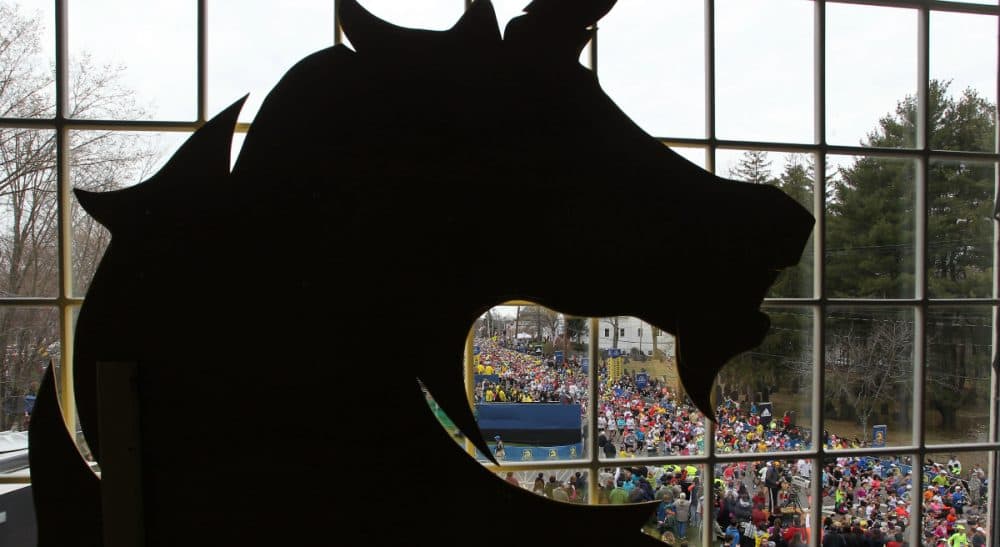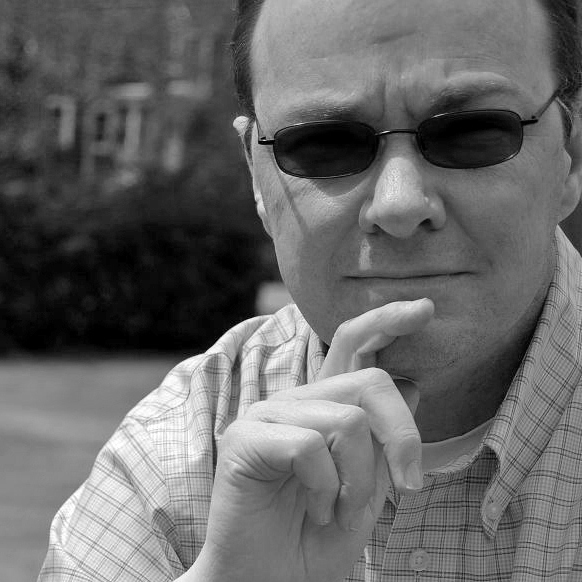Advertisement
The Question Of Time In The Aftermath Of Tragedy

Time heals.
The adage is true enough. But time, which most eases suffering, is the thing we can’t buy or beg for. We simply have to wait.
It’s been a year since the Boston Marathon bombing and its aftermath killed four people and injured more than 260. For those who watched the events from afar, the time that’s passed might be sufficient to allow them to move forward. For those who lost loved ones, those wounded and those who nursed the injured back to health, it has, most likely, been anything but enough.
“Where is time that both destroys and saves us?” asked the poet Czeslaw Milosz. A survivor in his native Poland during World War II, he knew about suffering. And here he speaks of the contradictory nature of time as both panacea and affliction: It is the only thing that will eventually ease our pain, yet its every beat is an abyss we must crawl out of in order to move on. Time is unique in this: It gives as it takes.
Now as we mark a dreaded anniversary, there are still many living with the events of last April. What has become history for the anonymous masses, for those directly involved it has become a shadow across their lives, something ever-present.
Several months after the bombings, I found myself standing on Laurel Street in Watertown with police Sgt. John MacLellan, whom I was interviewing for a magazine story. MacLellan was one of the law enforcement officials who engaged in a gunfight with the alleged bombers in this spot three nights after the marathon. He showed me the mark on the street where a homemade bomb landed just feet away from him. “I thought that was it,” he said.
Laurel Street was quiet on this afternoon, the sound of gunfire replaced by birdsong, a homeowner leisurely walking down the street to visit a neighbor, garbage cans baking in the hot July sun. These banalities of suburban existence bore silent witness to the violence of that mid-April gunfight, but now stood as proof that the street had moved on, the days had fallen one by one and life had stumbled forward. The welcome ordinariness of everyday life, for most, had returned. But for those still trying to come to grips with those eventful days of a year ago, time has felt different. It’s moved gracelessly, cautiously.
Advertisement
“I can’t believe it’s been three months,” Sgt. MacLellan said that day, as he looked up and down Laurel Street, perhaps remembering how close he’d come to joining the list of casualties connected to the bombings.
It is the only thing that will eventually ease our pain, yet its every beat is an abyss we must crawl out of in order to move on. Time is unique in this: It gives as it takes.
Time, that most visceral of abstractions defines us more than anything. It is ineffable, and fickle and viciously arbitrary. A daredevil lives to 90 while Martin Richard, who was watching a road race with his family, doesn’t make it to his ninth birthday; a Chinese graduate student, Lu Lingzi, never sees her homeland again; Krystle Campbell, a young woman misses a lifetime of family get-togethers and good times; and Sean Collier, a young man who dreamed of a career in law enforcement will never again don his badge and uniform. Why was their time cut short? We ask in vain. But there are no easy answers. There are limits to our understanding in this world.
The passing days, weeks and months ease the pain, but they also bring a sense of guilt. Is time allowing the rest of us to forget? Have we joked again, danced and sung and managed to live without that dark cloud? For every day we live without thoughts of the dead and wounded, should we feel as if we’ve betrayed them?
Rest assured, we have not forgotten. Elsewhere, Milosz writes, “The living owe it to those who no longer can speak to tell their story for them.”
And so we will. The victims will be remembered, their stories told, their memories prayed and wept for, and thus they will transcend time’s usual borders.
Related:

